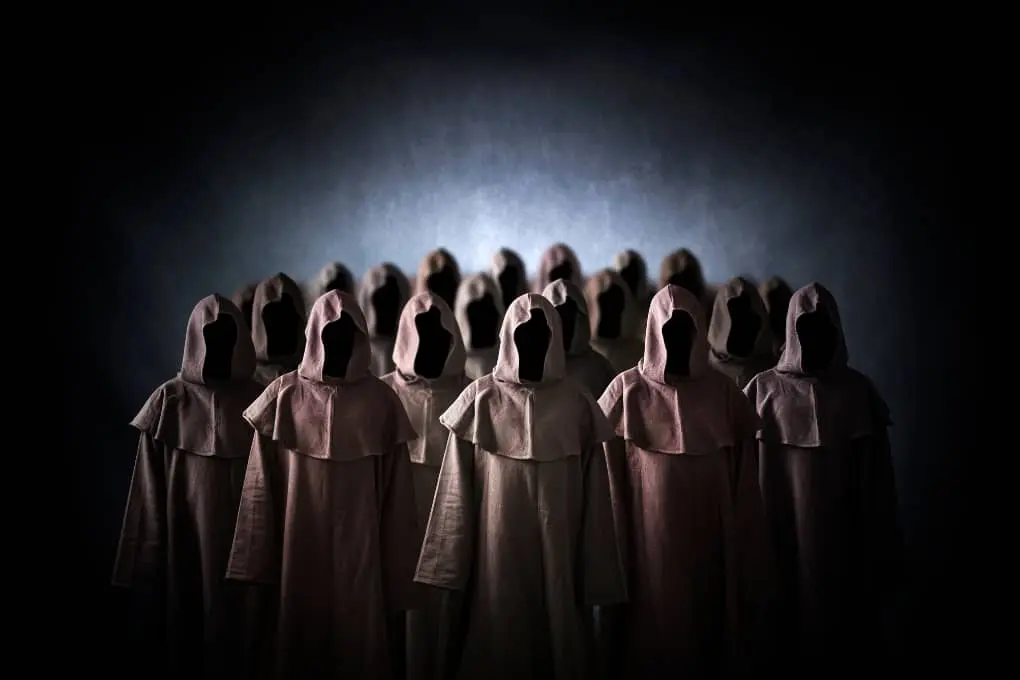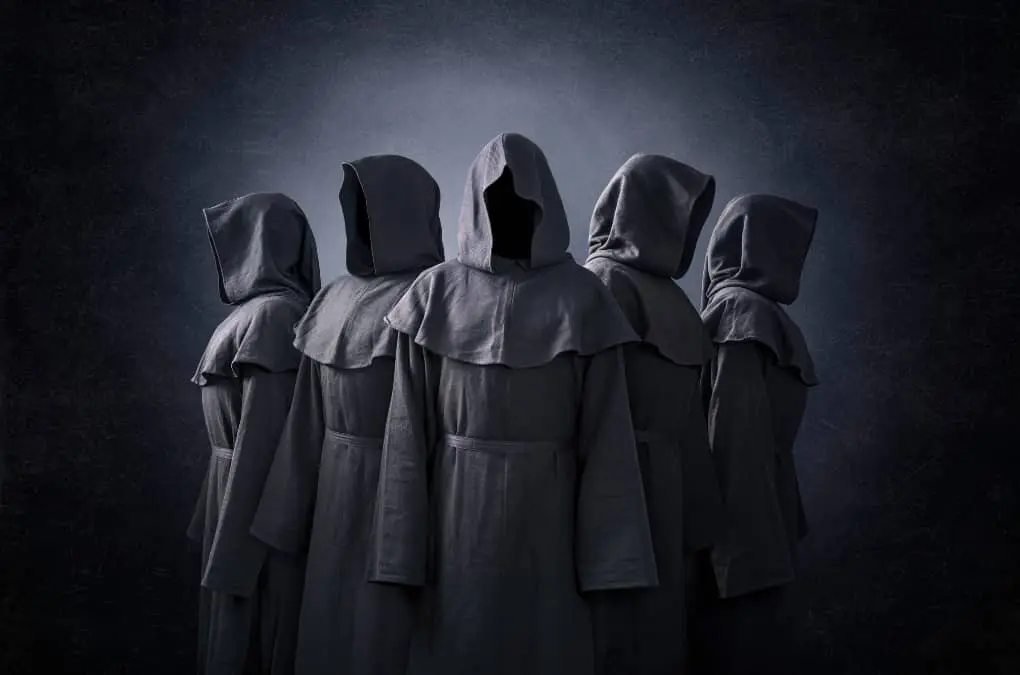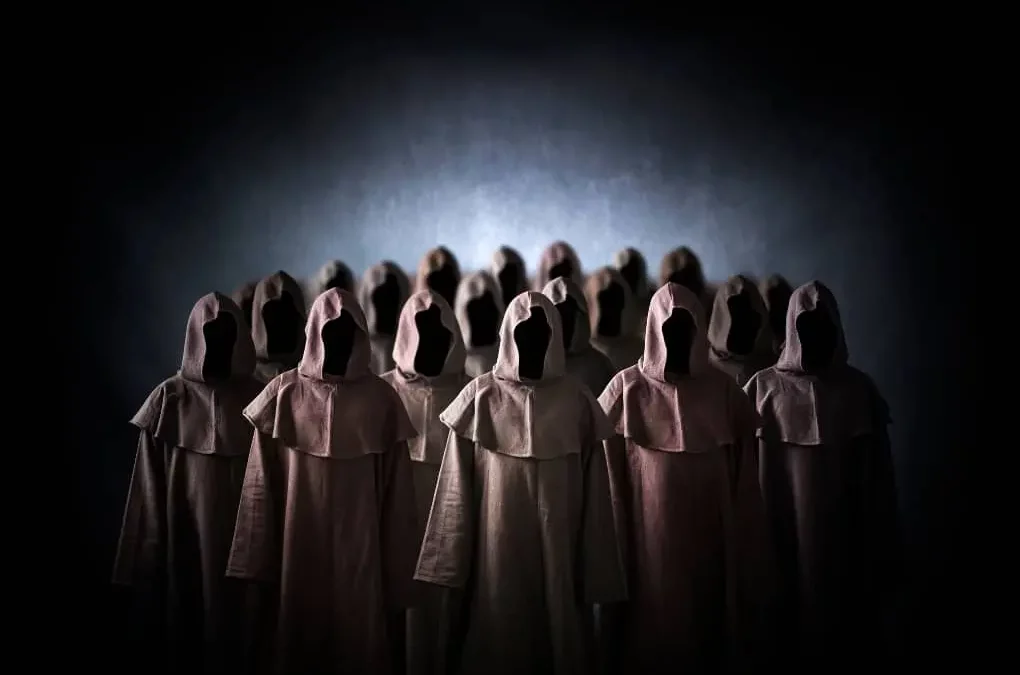It’s a rather unique area of investigation in which private investigators must get involved: infiltrating cults.

Since the health crisis and the successive lockdowns, many cases related to cults have been exposed. They highlight the dangers of these manipulative groups which aim to target vulnerable people of all ages.
In this article, we delve into this very specific topic to understand the importance of hiring a private investigator when one of your loved ones seems to be a victim of cultic deviations.
Private Investigators: Valuable Allies in the Fight Against Cults
In the face of a surge in complaints against cults, authorities don’t always conduct investigations. This is why families often turn to private detectives as a last resort.
Engaging a professional in the field for cult-related deviations requires a certain budget. Between CHF100 and CHF200 per hour depending on the context of the investigation:
- Complexity
- Geographical location
- Time required to gather legal evidence
The best way to obtain this evidence, which will be used in the context of civil or criminal proceedings, is called infiltration.
It’s important to note that this very specific work technique can be very risky and requires specialized training with distinct skills.
That’s why some private detectives have made it their specialty.
Example of a recent investigation involving a private detective’s infiltration into a cult
A father hired the services of a private detective to investigate his ex-wife, a member of a cult. He learned that the mother of his son regularly takes him to spiritual prayer sessions that start at 4 a.m…
Thanks to the work of the private investigator and the evidence he was able to gather, especially video footage, this evidence could be analyzed by a forensic psychologist working in tandem with him.
The role of this mental health professional is precisely to detect cult deviations.
According to this expert, who is concerned about the presence of young children at spiritual prayers, these children appear to be entirely devoid of critical thinking. This means that they fully “enter” into cognitive biases* of thought and belief that prevent them from questioning what they see, hear, or do.
The consequence? They will be much more susceptible and vulnerable to joining these same cult groups when they become adults.
Case summary: The father was able to use the findings of the private detective and the analysis of the psychologist by presenting them to the judge handling the case.
Based on the detective’s undercover work, the court removed the child’s custody from the mother.
* A cognitive bias is a misleading and falsely logical pattern of thought.
Challenges of Infiltrating Cults
The task of infiltrating a cult assigned to private investigators is far from easy. Here are the main challenges they face.
Security risks for private detectives
Infiltrating a cult can be a very delicate investigative area, as most of its members (especially those in leadership roles) can be very wary of outsiders. They may also have very aggressive reactions to those they consider foreign and perceive as a threat.
Private detectives working in this field must, therefore, be extremely cautious. They must take all necessary precautions to ensure their safety.
Emotional difficulties related to discovering cult practices
The work of infiltration can also be emotionally challenging. Indeed, during periods of surveillance and observation, detectives may witness shocking cult practices or abusive behavior towards any cult member.
It is therefore essential that these private investigators are psychologically prepared to face out-of-the-ordinary situations. This is in order to preserve their own emotional well-being.
Limits of authority and confidentiality rules
Another crucial aspect a private detective must consider when infiltrating a cult is the observance of laws and regulations concerning surveillance and evidence collection.
Throughout their investigation, they need to be aware of the limits of their authority and the confidentiality rules that apply to their profession.
These rules are also the same in other investigative domains.
When Should One Consider Hiring a Private Detective To Prove Cult Abuses?

Before resorting to a private detective to establish evidence of cult abuses, it is necessary to detect them using very specific criteria.
10 criteria that alert to a risk of cult abuses
To qualify a cult abuse, it is crucial to identify an additional criterion other than the main criterion commonly called “Mental Dominance.” It should be noted that this primary criterion is always present in cases of cult abuses.
Here are 9 additional criteria that help characterize a cult abuse:
- Exorbitant financial demands.
- Breaking away from one’s original environment.
- Instances of physical harm.
- Indoctrination of children.
- Antisocial rhetoric.
- Disturbances to public order.
- Significant legal disputes.
- Possible diversion from traditional economic channels.
- Attempts to infiltrate public authorities.
Signs, actions, and statements indicating a loved one is a victim of sectarian drift
- Doubting or challenging scientific claims and institutions in general.
- Statements based on dubious information sources.
- Significant dietary changes.
- Sudden break with family or close friends.
- Expensive and questionable business proposals.
- Outlandish promises.
- Speeches of revelations.
Once the sectarian drift is confirmed, you can resort to a reputable private detective agency in the absence of a judicial investigation.
Frequently Asked Questions
Here are several frequently asked questions on the subject of cults in Switzerland.
Are there religious or spiritual groups considered as cults in Switzerland?
Like everywhere in the world, they also exist in Switzerland. However, these groups remain very hard to locate as long as they do not attract attention.
Among the most well-known cults still present in Switzerland, we can mention the Moon cult. It is now called the “Family Federation for World Peace and Unification.”
Who should you contact if you suspect a loved one is a victim of sectarian drift?
In case of immediate danger, without waiting, you should contact the emergency call number of the police: 117.
If you want help in complete confidentiality, contact the associations or organizations below:
For all Swiss cantons:
Inter-cantonal Center for Information on Beliefs (CIC)
Phone: 022 735 47 50
Website: https://cic-info.ch
For French-speaking Switzerland:
Association for the Defense of the Family and the Individual – Switzerland (A.D.F.I.S)
Phone: 022 788 11 10
Website: http://asdfi.ch/
For the cantons of Geneva, Vaud, and Valais:
Rhizome Association
Phone: 022 909 24 45
Phone: 0800 900 777 (Gardezlelien.ch)
Website: https://pole-rhizome.ch
Is the term “cult” legally defined in Switzerland?
The answer is no. Swiss law does not define the notion of a “cult”. It prefers to stick to the term “sectarian drift”, which is used to qualify acts punishable by law committed in the name of beliefs.
Conclusion
It is clear that the work of private investigators is of paramount importance in detecting and proving sectarian drift.
Infiltrating a cult often proves to be complex and dangerous. It requires specific skills, great caution, and a deep understanding of the laws and practices of these groups that take advantage of weak and vulnerable individuals.
If one of your loved ones is a victim of sectarian drifts, it is essential to call upon qualified and trustworthy private detectives.
We understand that facing a situation involving a cult can be difficult and delicate. Do not hesitate to contact us to discuss your situation and how we can assist you.
Additional sources
Republic and Canton of Geneva: Report of the State Council to the Grand Council on the petition against sectarian drifts (in french).
Letemps.ch: The Moon cult is still present in Switzerland (in french).






